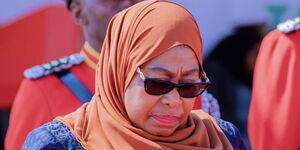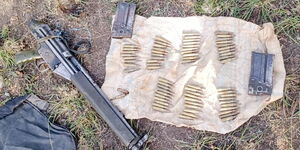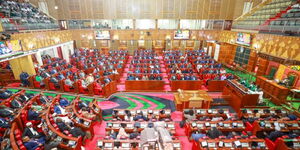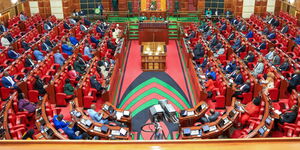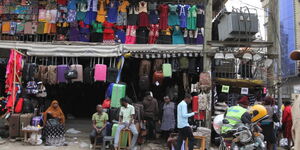Agriculture and Livestock Development Cabinet Secretary Mutahi Kagwe, on Thursday, October 2, strongly defended the government's decision to impose a 4 per cent levy on sugar, insisting that a significant portion of the funds is meant to go towards research.
Appearing before the Senate Committee on Delegated Legislation, Kagwe termed the levy as more than a revenue measure, insisting it was a strategic intervention to save the struggling sugar sector.
“Maintaining the rate at 4 per cent is not about burdening the industry, but about aligning resources to the scale and scope of today’s challenges and opportunities,” Kagwe said.
“Without investment in research and new technologies, the industry will not survive the pressures it faces today."
In July, the Ministry of Agriculture announced that the Sugar Development Levy is payable by a section of Kenyans.
The levy will be payable by every miller and every person who imports sugar at the rate of 4 per cent of the ex-factory price for domestic sugar and 4 per cent of the cost, insurance, and freight (CIF) value of each consignment of imported sugar.
Amid criticism from a sections of millers, CS Kagwe on Thursday explained that the levy was crucial in funding research projects to better the sugar industry as he pointed to the expanded mandate of the Kenya Sugar Research and Training Institute (KESRETI) under the new Sugar Act 2024, which now includes not only scientific research but also capacity-building and training for farmers and industry players.
Kagwe added that there was an urgent need for the country to replace outdated cane varieties, which alarmingly constitute 97 per cent of sugarcane in the country.
"These older varieties are highly susceptible to disease and drought and yield less sugar compared to modern alternatives. “Research is the engine for introducing high-yield, climate-resilient varieties,” he added.
The CS also highlighted the urgent need to train farmers and millers in new agricultural practices, mechanisation and value addition, with all these requirements falling under KESRETI's new role.
Besides research, the 4 per cent levy will be distributed across other core areas. 40 per cent has been earmarked for cane development and productivity enhancement, while 15 per cent will go towards factory development and rehabilitation.
Another 15 per cent will go towards infrastructure, while 10 per cent has been allocated to the administration of the Kenya Sugar Board. Meanwhile, 5 per cent will go towards the farmer organisation.
Kagwe warned that failing to fund research and innovation would deepen the challenges facing the sugar sector, including poor yields, factory inefficiencies, and growing dependence on imported sugar.
The Senate Committee is now expected to review submissions from the Ministry and other stakeholders before making a final decision on whether the 4 per cent levy will stand or be amended.


